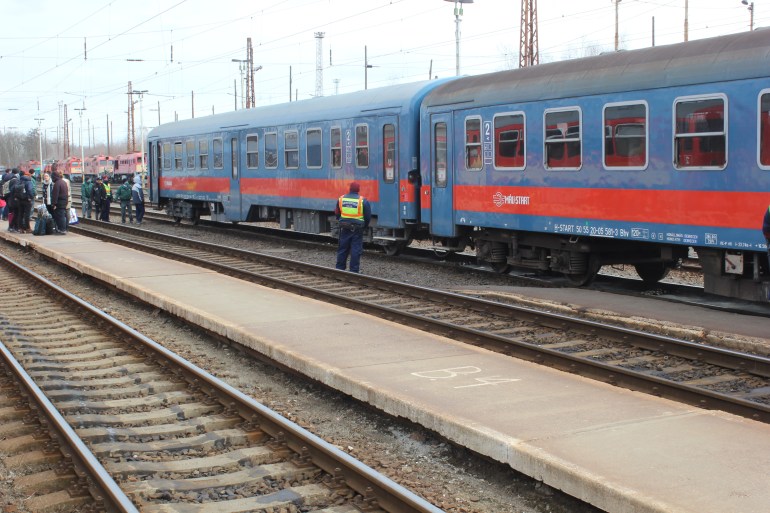Foreign students fleeing Russia’s war on Ukraine hope to return
Foreign students fear for their future as they wonder if they will be allowed to complete their studies.
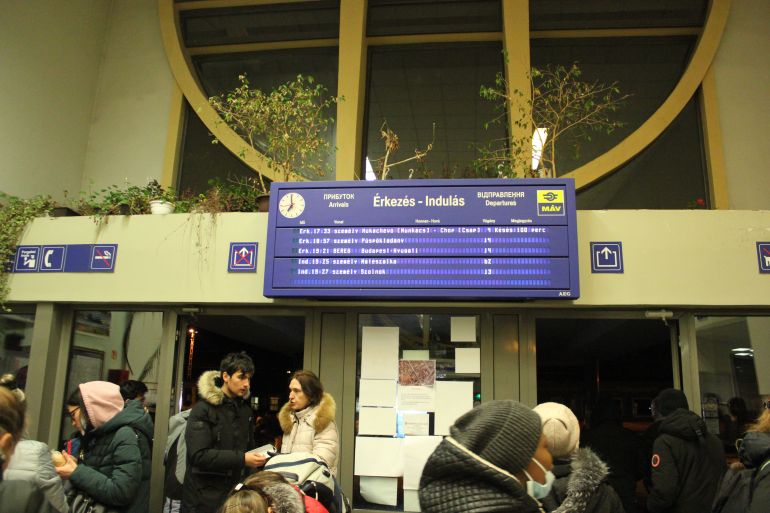
Zahony, Hungary – In the early morning at Zahony train station near the Hungary-Ukraine border, trains arrive every few hours from the Ukrainian city of Chop.
Among those disembarking from the dark blue trains, which pull into the Hungarian border town every few hours, are hundreds of students, many of them from countries such as Nigeria, India, Egypt and Morocco, who have spent the last years studying in Ukraine.
Keep reading
list of 3 itemsWhat is Putin’s endgame in Ukraine?
US: Ukraine has ‘significant majority’ of its military aircraft
Zahony, a small unassuming train station, now hosts hundreds of people arriving via train or bus every few hours as volunteers hand out croissants and hot soup to the people sitting among backpacks and suitcases. Many of those in the station’s waiting room are foreign students in Ukraine who are coming to terms, like everyone else, with just how much they have lost.
Nearly everyone is waiting for the free connecting train to the capital, Budapest, available with a “solidarity ticket” which is handed out by railway authorities to people on arrival to Zahony.
In the hours between their arrival from Chop and their departure to Budapest, Al Jazeera spoke to some of the foreign students who had fled the war in Ukraine, about the degrees they had had to abandon and their hopes to return eventually to resume their studies.
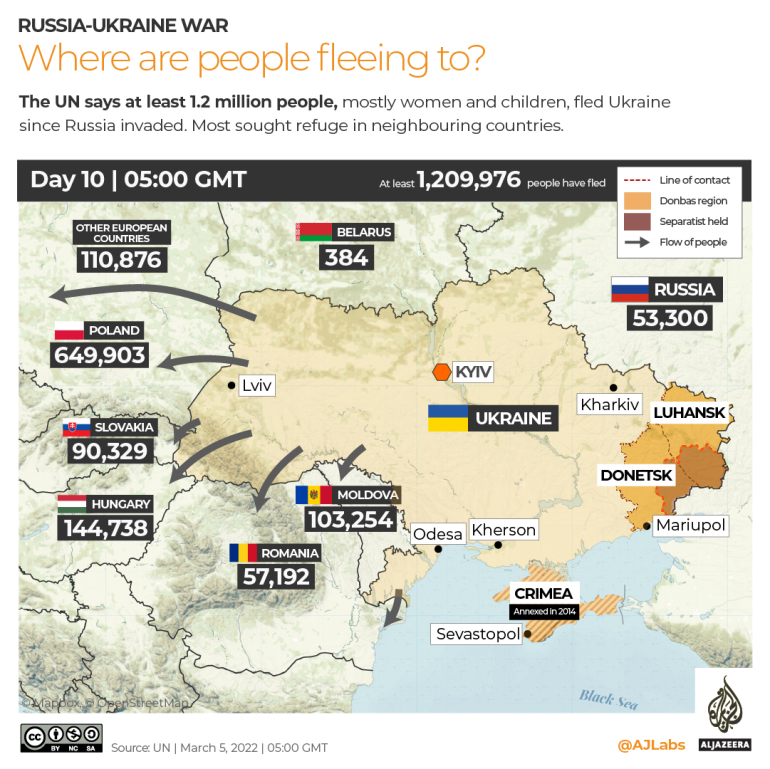
‘We don’t know when we will come back’
It is estimated that there were 76,548 international students enrolled in Ukrainian universities of which about 18,000 come from India.
Hiba and Akhila, both 22 and originally from the southern Indian state of Kerala, were among those sitting amid backpacks at the station. They recounted, like everyone, a harrowing escape from the war-torn country.
“It took us 29 hours to get to the border,” said Hiba, who spent four years studying medicine at Zaporizhzhia State Medical University in the city of Zaporizhzhia in the southeast of the country.
She finally left when she heard a blast near her home.
“We don’t know when we will come back. The university didn’t say anything about it and no one knows what will happen,” Hiba said even though she was looking forward to seeing her family in Kerala.
She is keen to return to Ukraine to resume her studies if it was possible. “Of course, we will come back,” she said defiantly. “We have two more years to finish. We have to come back.”
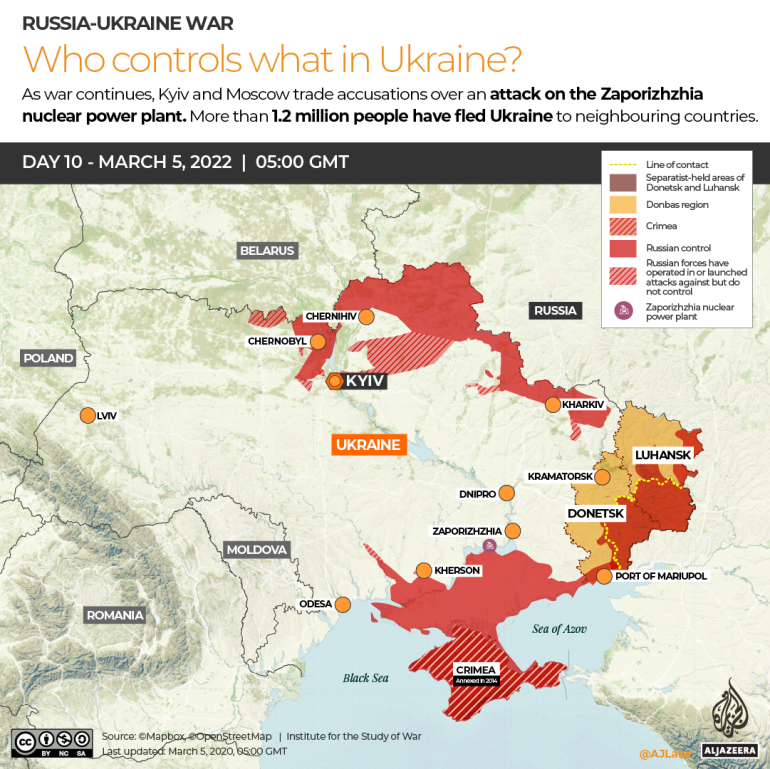
A group of students from Egypt, Tunisia and Morocco, who stood smoking and chatting outside the train terminal, described a similarly difficult escape from Kharkiv, which has borne the brunt of the Russian attacks, and days of confusion before their university closed.
They did not wish to be identified any further than their nationalities, but they had all been studying medicine in Kharkiv, many in the group were in their final year and due to sit their final exams this year.
“There is no cooperation between the universities and their students, right now they said that they can give us our old journals with our marks but what if the institution gets hit?” he said.
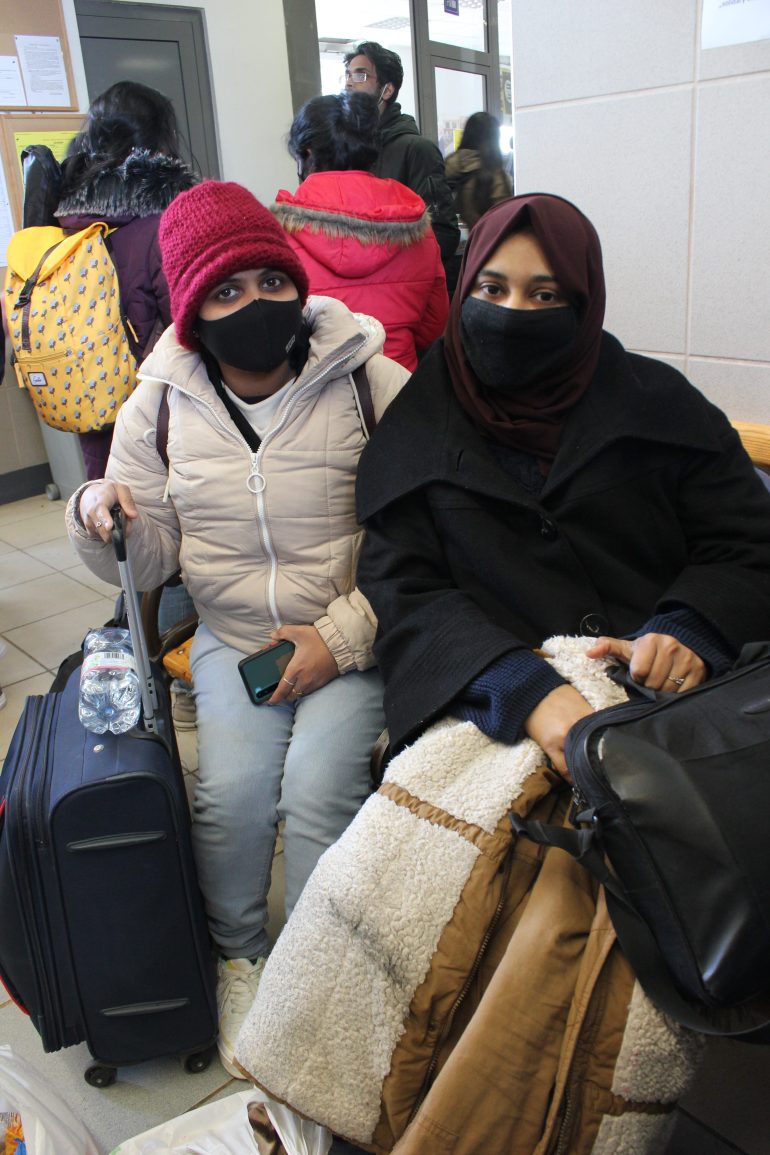
Another member of the group wondered again how they would get their degree certificates.
For others, the question of whether they would ever get their degrees was secondary. “That’s not really the issue,” said one young man, also from Egypt. “Some of the students are still there. We don’t know how they can get out.” Many in the group still had friends in the besieged city of Kharkiv.
As night fell on Zahony, more students arrived at the station. Among students playing games and cats sitting in their carry-baskets, Vyshnavi Rathinasamy from the southern Indian city of Chennai, who has hopes to be a gynaecologist, sat with her backpack on her lap.
Rathinasamy, in her early twenties, had been studying medicine in the city of Dnipro and had left two days ago with a large group of students. She had taken a bus from Dnipro to Chop, a journey which took more than a day by road. “I had only three months left,” said Rathinasamy, who was due to sit in her final exams this year.
Her friend, Joe David, also from Chennai, who hopes to specialise in internal medicine, said they decided to take the bus after hearing that there had been discrimination on some of the trains. “One of the main reasons we didn’t take the train is that Ukrainians are given the first priority,” he said. “Even if you book the train tickets, the Ukrainians were the ones who got the seats.”
Rathinasamy said the Indian government has arranged free flights to the capital, New Delhi. She added that she had heard her embassy would collect all the arriving Indian students in Budapest and accommodate them until they departed the country.
Rathinasamy, like many others Al Jazeera spoke to, wanted to return if possible to finish her studies. “Ukraine is a really good place, and they are really good people,” she said.
“They [the university management] told us to go home. I just hope that everything will be OK, and I can go back and resume my studies,” said Rathinasamy.
For now, Rathinasamy and David are waiting, like hundreds of others, for the next train departing from the Hungarian border to Budapest. Both are still desperately trying to contact friends back in the war-torn country, some Indian, some Ukrainian, many of whom were no longer picking up the phone.
